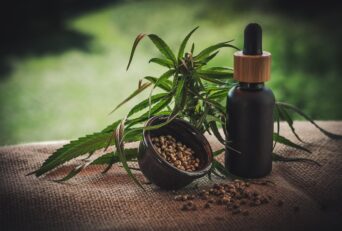Prescription drugs are among one of the most abused in the United States. According to Absolute Awakenings, nearly one-quarter of patients that have been prescribed opioid-based prescriptions were known to abuse it in recent years. This guide will go over the causes of this and the symptoms that can occur.
We will also cover treatment that is available in the United States. Getting the help someone needs as soon as possible should be their next big step if they are abusing prescription drugs. Let’s take a look now at prescription drug abuse and how it can be developed for many people.
Table of Contents
Why do people need prescription drugs?
For those with real medical reasons, they are provided with prescription drugs to help manage pain and other symptoms of chronic medical conditions they may have.
To that end, people are using prescription drugs beyond the recommended dose provided by their doctor. At the same time, there are other prescription drugs used to treat mental disorders (also known as sedatives).
Needless to say, there are different kinds of prescription drugs out there that are widely abused. It can even get to the point where they would build up a tolerance and consume more. This can lead to fatal consequences depending on the type of drug being used.
What are the causes of prescription drug abuse?
There are a few major causes why prescription drug abuse happens. Here’s what they are:
- Genetics: If you have a relative that has dealt with drug abuse or addiction, the chances of this occurring are increased
- Environmental: You may be in an environment where you may be surrounded by people who are abusing substances. You might be living with people who have prescription drugs that have been legitimately prescribed or stolen. Your environment can influence your behavior and drug abuse can happen if you happen to be in the ‘ideal place’ for it.
- Brain chemistry: You may have an issue with brain chemistry where prescription drugs may be used in the first place. However, the risk of increasing the dose without prior approval from your doctor still exists. Some may even be born with a lack of specific neurotransmitters in their brain that will provide them with sensations of pleasure.
- Psychological: If a person is suffering from a mental illness, they may use prescription drugs as a way to self-medicate. This is also known as co-occurrence disorder. Most of the time, the mental disorder can pre-exist the drug abuse even if it hasn’t been diagnosed beforehand.
Signs and symptoms of prescription drug abuse
If you or someone you know may be dealing with prescription drug abuse, you’ll want to look out for any signs and symptoms. Let’s take a look at the following list of what to look out for:
- Seeking behavior: This includes ‘doctor shopping’. They may look for a new medical provider in an effort to get a prescription for certain prescription drugs. They may also seek it using illegal methods such as breaking and entering into homes.
- Mood swings: This can be associated with whether or not they are close to the prescription drugs they need.
- Irritability: Can occur when they are not within reach of the prescription drugs they want.
- Crushing pills: Used to snort or even smoke them (if possible).
- Drowsiness or sleepines
- Confusion: Including simple information such as the date and time or where they are.
- Impairments of memory: May not remember events that happened in the short or long-term.
- Weight loss: Likely due to loss of appetite or nausea, which can lead to refusal to eat.
- Irregular heart beat
- Reckless behavior
- Increase in risk-taking behaviors
What are the treatment options for prescription drug abuse?
The best treatment option for prescription drug abuse will depend on the severity of the addiction. For example, you may deal with an addiction that could lead to withdrawal symptoms that can be serious (and even fatal, if untreated). Inpatient treatment options are available for this purpose.
If the abuse problem is not as severe, you can choose an outpatient option. Treatment for prescription drug abuse will mostly involve talk therapy with an addiction counselor. If you opt for inpatient treatment, you’ll have a medical staff that is on standby whenever you need them.
Your treatment plan can last weeks, months, or even up to a year depending on the severity. When you are evaluated due to prescription drug abuse, a professional will be able to assess the situation and make recommendations on how your treatment plan will be going forward.
If possible, you may also be diagnosed with co-occurring disorder. This will usually happen if you have not been diagnosed with a mental condition in the past. Again, a mental condition will likely pre-exist drug abuse or addiction (hence the self-medication reason).
During your treatment process, you’ll want to consider planning life after treatment. How will you live after beating your prescription drug abuse? What are the steps you need to take just in case a relapse happens?
The treatment process is an opportunity for someone to take a moment to appreciate what life is to them. This also gives them a chance to build that support network that will be with them every step of the way. Finally, it gives them an opportunity to cover their bases when it comes to their treatment and aftercare.
Final Thoughts
If you or someone you know is dealing with a prescription drug abuse situation, getting help is highly recommended. It’s important that you make the right choice for yourself or that person. Prescription drug abuse can and will have fatal consequences.
What may be used legitimately at the outset can be easily abused. Make sure that you spot any signs of prescription drug abuse to get help as soon as possible. A delay in doing this can be a costly mistake that no one needs to make.
Don’t take any chances. Contact Absolute Awakenings today to see what you can do to treat your prescription drug abuse.






